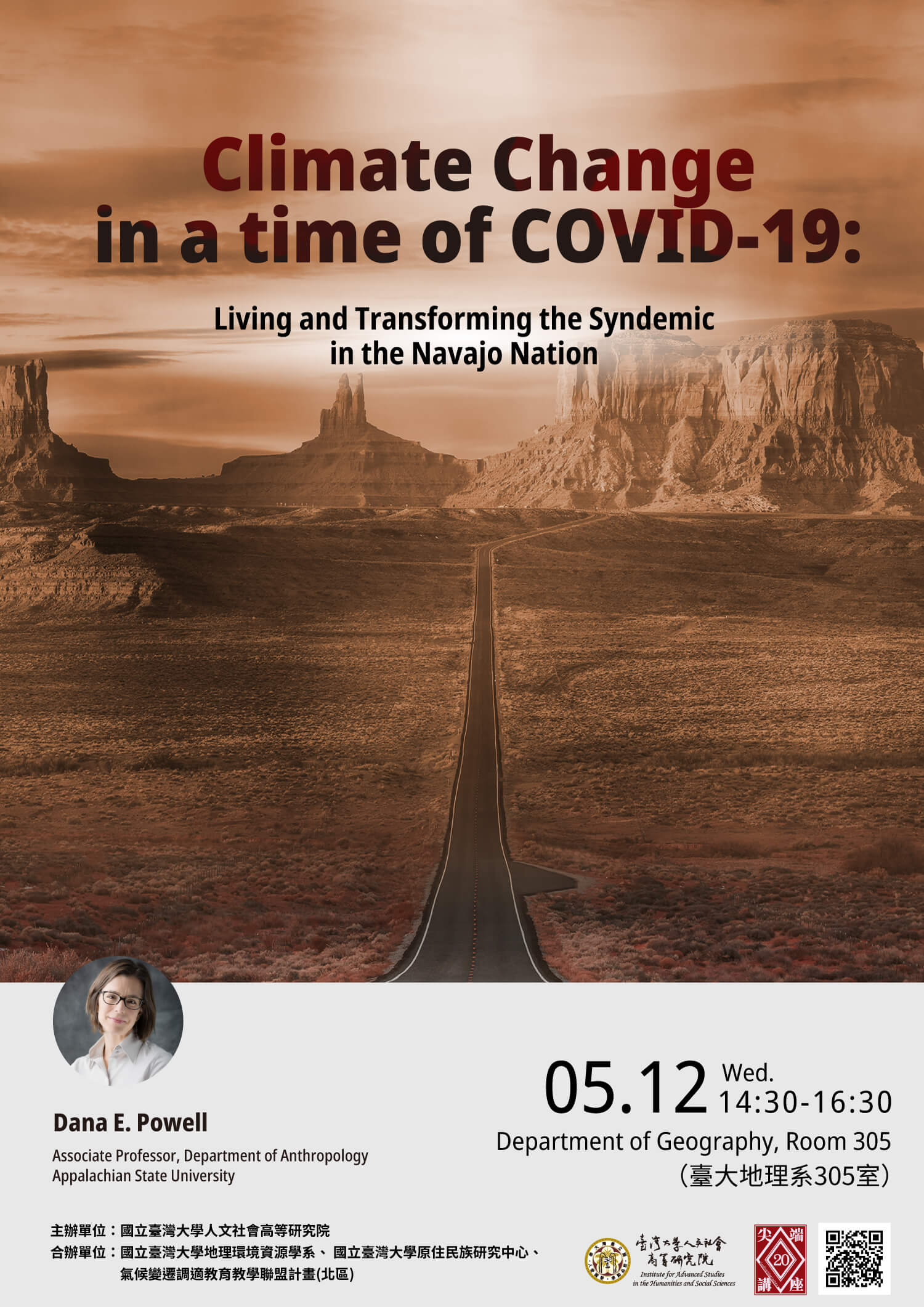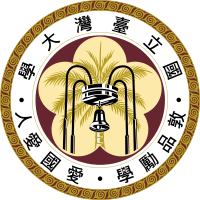【尖端講座系列】第二十場 Climate Change in a time of COVID-19: Living and Transforming the Syndemic in the Navajo Nation
【尖端講座系列】第二十場
講題:Climate Change in a time of COVID-19: Living and Transforming the Syndemic in the Navajo Nation
時間: 2021/05/12 14:30-16:30
地點: 臺大地理系305室
主講人: Dana E. Powell (Associate Professor, Department of Anthropology, Appalachian State University)
主持人:洪廣冀(國立臺灣大學地理環境資源學系副教授)
報名網址:https://forms.gle/yCpcvewZeNyq9KRr7
主講人:
Dr. Dana E. Powell is a cultural and environmental anthropologist whose work seeks to understand lived experiences of environmental risk, extractive industry, and ongoing processes of colonialism in Native North America and in the Navajo Nation, in particular. Powell’s scholarly interests emerged from her work within feminist and indigenous social movements and those relationships and commitments sustain her ongoing research agenda in energy and environmental humanities. Powell is Associate Professor of Anthropology at Appalachian State University, where she designed and directs the Department’s undergraduate program in Social Practice and Sustainability.
In her first book, Landscapes of Power: Politics of Energy in the Navajo Nation (Duke University Press, 2018), Powell explores the rise and fall of the controversial Desert Rock Power Plant initiative in New Mexico and its impacts on public debates over science and technology, generating new tensions among varying interpretations of sovereignty, expertise, and development. She has also published in the Journal of Political Ecology, Anthropological Quarterly, Collaborative Anthropologies, and various edited volumes. Her most recent project examines the creation of solidarities and urban infrastructures in the resistance to the Dakota Access Pipeline in Standing Rock, North Dakota.
摘要:
This presentation examines Indigenous Navajo (Diné) apprehensions of the recent collision of three threats to life: contamination, climate change, COVID-19. Though seemingly separate and distinct, the collision of these three in 2020 revealed a true syndemic: the triple threat was, in fact, an entanglement of historically produced conditions. This syndemic is most apparent through the analytic of water, as a fluvial force that transports life and death in the high desert plateau where the Navajo Nation exists. Extreme drought in the US Southwest in recent years has created precarious conditions for human and animal life as natural water resources rapidly dwindle. At the same time, many of these water resources are contaminated from decades of intensive extraction of energy minerals, primarily uranium for Cold War weapons production and, later, coal and natural gas for power generation for export to the urbanizing greater Southwest. Moreover, one-third of Diné households have no access to potable water, exposing the 2020 mandate to “wash hands” to ward off the virus, as an infrastructural and political problem. This presentation examines Diné apprehensions of the syndemic through intertextual and visual media, Powell’s collaborative ethnographic research, and materials published in the public domain, arguing that the Navajo Nation offers a microcosm for understanding how sovereignty-centered strategies of resilience are required to mitigate and transform a triple threat of peculiar historic conditions.
Note: research for this project has been undertaken in consultation with Diné leaders and with a tribal research permit from the Navajo Nation Department of Historic Preservation.
主辦單位:國立臺灣大學人文社會高等研究院
合辦單位:國立臺灣大學地理環境資源學系、國立臺灣大學原住民族研究中心、氣候變遷調適教育教學聯盟計畫(北區)
*此講座以英文進行
*此次活動為實體講座,不會有同步線上直播。錄製影片將於活動結束後約一個月,上傳到本院YouTube頻道和臺大演講網,屆時將會於臉書上公告影片上傳訊息讓觀眾朋友知道喔!




